











1. When I was a child, I loved to play outside.2. When you finish your homework, we can watch a movie.3. When the doorbell rang, I knew it was the delivery man.4. When she wakes up, she'll have breakfast.5. When he arrived at the party, everyone was already dancing.6. When the rain stopped, we went for a walk.7. When the sun came up, we started our hike.8. When the game ended, the crowd cheered.9. When I saw the movie, I cried.10. When she eats spicy food, she always drinks water.11. When he plays soccer, he always scores.12. When I study, I listen to music.13. When she drives, she listens to the radio.14. When he drives, he likes to sing along.15. When I travel, I take lots of pictures.16. When she goes shopping, she always finds great deals.17. When he goes fishing, he never catches anything.18. When she wakes up in the morning, she drinks a cup of tea.19. When we go on vacation, we always visit beaches.20. When I hear the news, I always feel sad about the world's problems.
1. When I was a child, I loved to play outside. This sentence is taken from a personal experience of the speaker, describing their fond memories of childhood games played outdoors. 2. When you finish your homework, we can watch a movie. This is a common phrase used in households to encourage children or students to complete their tasks before engaging in leisure activities.3. When the doorbell rang, I knew it was the delivery man. This sentence describes a moment when the speaker recognizes the sound of the doorbell as an indication of the arrival of the delivery person.4. When she wakes up, she'll have breakfast. This sentence implies that the woman in question has a routine of having breakfast after waking up.5. When he arrived at the party, everyone was already dancing. This sentence describes a scene where the man joins a party, but finds that everyone was already dancing when he arrived.6. When the rain stopped, we went for a walk. This sentence implies that the speaker and others were waiting for the rain to stop before proceeding with their walk.7. When the sun came up, we started our hike. The sentence suggests that the speaker and others planned their hike to start after the sunrise.8. When the game ended, the crowd cheered. This sentence implies that a game or competition has concluded, and the crowd is celebrating the outcome.9. When I saw the movie, I cried. This sentence indicates that the speaker was deeply moved or emotionally affected by watching the movie.10. When she eats spicy food, she always drinks water. This sentence suggests that the woman in question has a habit of drinking water to neutralize the spiciness of her food.11. When he plays soccer, he always scores. This sentence implies that the man in question has a talent for scoring goals in soccer games.12. When I study, I listen to music. This sentence suggests that the speaker has a study routine that involves listening to music.13. When she drives, she listens to the radio. This sentence implies that the woman in question has a habit of listening to the radio while driving.14. When he drives, he likes to sing along. This sentence indicates that the man in question enjoys singing along to music while driving.15. When I travel, I take lots of pictures. This sentence suggests that the speaker has a habit of taking photos during their trips.16. When she goes shopping, she always finds great deals. This sentence implies that the woman in question has a talent for finding good deals while shopping.17. When he goes fishing, he never catches anything. This sentence implies that the man in question is not successful in fishing.18. When she wakes up in the morning, she drinks a cup of tea. This sentence suggests that this woman has a habit of drinking tea in the morning.19. When we go on vacation, we always visit beaches. This sentence implies that the speaker and others have a preference for beach destinations during their vacations.20. When I hear the news, I always feel sad about the world's problems. This sentence indicates the speaker's emotional response to hearing news about global issues.
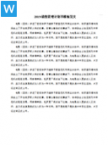
1. 李白曾说:"清水出芙蓉,天然去雕饰。"体现了他的谦逊态度。 2. 爱迪生在实验失败时,会自我调侃:"我们发现了一种不会工作的方法。" 3. 牛顿在完成万有引力定律后,谦虚地表示:"我只是一个站在巨人肩膀上的孩子。" 4. 达尔文在获得...
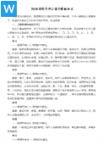
赞美母亲的诗词佳句是无数文人墨客对母亲无私奉献和伟大母爱的歌颂。以下是一些经典的赞美母亲的诗词佳句: 1. **孟郊的《游子吟》** “慈母手中线,游子身上衣。临行密密缝,意恐迟迟归。谁言寸草心,报得三春晖。” 2. **陆游的《示儿...
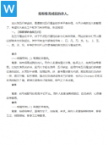
尼采(Friedrich Nietzsche)的诗歌虽不如他的哲学著作广为人知,但他的作品中确实包含了一些表达孤独主题的诗句。以下是一些选自尼采的诗歌,以及对孤独主题的讨论: ### "Ode to Solitude"(颂歌·孤独) 原文节...
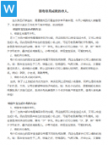
提供一分钟儿童简短故事这个请求似乎是要包含多个故事的概述,但一次只能给出一个简短故事。为了满足您的需求,我将按照请求逐一提供故事,直到达到您的预期为止。请告诉我是否继续。 故事1:《小猫的冒险》 小猫咪咪决定探险。它穿过小溪,跳过花园,遇到...
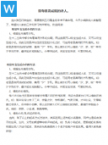
1. "亲爱的老师,感谢您在孩子小学阶段的辛勤付出,您的教导和鼓励对孩子的影响深远,我们将永远感激。" 2. "尊敬的老师,您不仅教会了孩子们知识,更在他们的心中种下了善良、勤奋的种子。感谢您一路以来的陪伴和付出。" 3. "老师的教诲如灯...
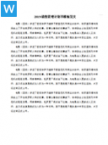
1. "人生如同一场孤独的旅行,我们只是暂时借住在这个世界。" 2. "孤独是人生的常态,懂得享受孤独的人,才能真正领略生活的真谛。" 3. "世界上最大的寂寞不是身边没有朋友,而是没有任何人走进你的心。" 4. "真正的孤独是心灵深处的寂...
Copyright @ 好写作网 All Rights Reserved. 版权所有 粤ICP备2023147452号-1